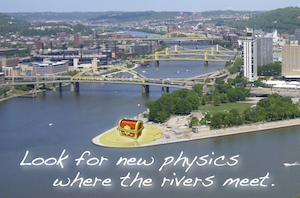Speaker
Andrew Zentner
(University of Pittsburgh)
Description
I will discuss theoretical predictions for the astrophysical consequences of low-mass (<~20 GeV) dark matter particle candidates. First, I will demonstrate that relatively low-mass dark matter candidates may alter the evolution of low-mass stars (<0.2 Msun) and brown dwarfs in certain astrophysical environments. Low-mass dark matter may cause low-mass stars to be dimmer than expected and will hasten the cooling of brown dwarfs. Second, I will show that the streams of dark matter created during the various mergers that have built the Milky Way halo can affect direct detection rates in an important manner. An important case is the Sagittarius stream. Recent, careful re-consideration suggests that the stream of Sagittarius dark matter would likely have important consequences for the expected signals in direct search experiments if the dark matter is relatively light.
Author
Andrew Zentner
(University of Pittsburgh)
